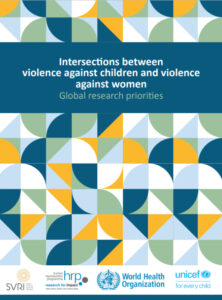How school reinforces inequalities between Black children and their peers.
Part of the discrimination issue of The Highlight. This story was produced in partnership with Capital B.
For many Black children, their first encounter with the discrimination that will trail them their whole lives comes from the school system — a system where they are five times more likely to attend a segregated school than their white counterparts.
This early exposure to segregation is one of many possible factors contributing to what’s known as the racial achievement gap — the gap between Black and white students’ test scores. Education experts have looked to a number of factors as root causes of the gap: family income, single parenthood, school resources.
But a study by Francis Pearman, an assistant professor at Stanford University’s Graduate School of Education, shows other components may be at play. According to Pearman, it comes down to what he refers to as “sorting mechanisms.” These are the ways students are separated from one another and into different academic experiences. “Why is it that communities with elevated rates of racial bias have higher levels of Black-white test score disparities?” he asks. “It’s partially explained by the fact that this is partially a story of racial segregation. But there’s a couple other sorting mechanisms that also play out.”
Black children are less likely to be tested for gifted programs and more likely to be put in special education than their white counterparts. The gap decreases when children are tested for gifted enrollment across the board.
“The other big pathway is with regard to discipline,” he says. Communities where residents have higher levels of anti-Black bias also see a major difference in how Black and white students are disciplined: While Black students make up about 15 percent of total students, they make up 36 percent of all expelled students.
In this episode of The Weeds, we sit down with Pearman to talk about the role school discipline plays in the achievement gap.
Below is an excerpt of our conversation, edited for length and clarity. You can listen to The Weeds on Apple Podcasts, Spotify, Stitcher, or wherever you get podcasts.
When we’re talking about school discipline, what exactly are we referring to?
When we talk about discipline in a general sense, we’re talking about tools that any individual uses to correct student behavior. Now, there are a lot of different ways in which student behavior can be corrected. In general, school discipline has been characterized in one way, shape, or form as exclusionary discipline.
That exclusion could take the form of an in-school suspension. That is sending a student out of a classroom and sending them into a separate classroom in a school environment for a day or extended period of time, but the student stays at that school.
Since 2022, Vox has partnered with the Black-led nonprofit newsroom Capital B to publish inclusive, rigorous journalism for our audiences.
A utopian vision for Black life
What to do about mass incarceration
The origins of the Juneteenth flag
The growing movement for reparations in health care
Our collaboration launched with a comprehensive look at Juneteenth as it became the nation’s newest federal holiday. You can read the entire discrimination package here.
There’s also out-of-school suspensions that are for any given behavioral infraction. There’s also more extreme forms, like expulsion, where you’re sending a student away from the school entirely.
But there’s also this increasing presence of law enforcement in schools that also have a number of related disciplinary outcomes of interest that are similarly understood in this exclusionary framework.
Suspension has always been a fascinating form of discipline to me. When I was a kid I thought, “Wait, they get to get out of school for being ‘bad’?”
There’s a certain irony with the decision to send a kid away from a learning environment that we broadly understand as helpful and promoted for that child’s development. In some cases, maybe the student didn’t want to be in that learning environment to begin with, right? For some students, that might be a welcomed disciplinary action on their part.
But really, the issue — aside from just the kind of the curiousness of that approach — is we also know that experiencing school discipline is associated with a variety of outcomes that are generally not that good. Students who experience suspensions, expulsions, any sort of arm of this exclusionary discipline process, are less likely to graduate high school, are less likely to persist in school, and are more likely to drop out of school. They’re less likely to go on to college and are far more likely to become involved in the criminal justice system as a result of that exclusionary discipline experience happening.
So because of that, it really is quite important to really interrogate instances of exclusionary discipline, and understand the ways in which they’re being meted out in unfair ways. It’s highly consequential for students, both [for] short- and longer-term outcomes. Which is part of the reason a number of progressive school districts have begun to rethink what school discipline ought to look like. There’s this growth in restorative justice practices, positive behavioral supports, and systems based on this idea that, rather than thinking about correcting student behavior by sending students elsewhere, we should really be thinking about correcting student misbehavior in ways that create bridges.
Can you talk about how race factors into discipline in particular when it comes to this? How do we know race is a factor?
We know that racial discrimination is a persistent feature of many of our social institutions in the United States. There’s quite a bit of evidence on this point that racial biases actually play out in how discipline is meted out in classrooms. For instance, we know that teachers are more likely to gaze at Black students when they expect problematic behavior of the classroom overall. So if a teacher’s anticipating there being a problem, they look at Black students. We know that white children are far more likely [to be] sort of given the grace associated with childhood status compared to Black children. Teachers or authority figures are far more likely to give white children a second chance when it comes to misbehavior than they are to Black students.
But more specifically in regard to discipline and out-of-school suspension, there’s quite a bit of work that’s tried to disentangle these factors over time. We know that for any given behavioral infraction, Black students in particular are not only more likely to experience punishment, but the severity of the punishment that they experience is also worse than their white counterparts.
As an adult, I look back on my own experience in the public school system. And I remember when I was in middle school in Kansas City before my family moved, I went to this college preparatory magnet middle school. One of the factors that I had to think of when I was getting ready for school in the morning and being on time was that we had to go through metal detectors. If we were in line for the metal detector when the bell rang, we would be marked as late or as absent. At the time I thought, “Yeah, this is teaching me responsibility, it’s teaching me how to manage my time, it’s keeping me safe.” And I look back and I think “Oh, maybe it was less about keeping me safe and more about teaching me how to be policed.”
At the same time, I think of those schools that are really hard and disciplined for Black children. And the thing is, the world is not that kind to Black people. And as tragic as having to do that is, I kind of understand — especially why parents — can be so tough on those Black children: because the world is tough on them. How do we straddle that line? Do we live in an existence where we say, “Okay, but that’s not the world I want to live in, so that’s what I’ll prepare my children for?” Or do you say, “Hey, this is real life, and yeah, you’re going to have to be way more on top of it than people who don’t look like you?”
You’re bringing up such an important point. Think about the role that schools play in our society. In one respect, you can think about schools as preparing students to engage [with] the world [as it] is. Equipping students with the dispositions, with the skills, with the mindsets that allow them to kind of plug and play.
The concern or the critique there is that the world in which they would plug and play is deeply unequal and deeply unfair along the lines that we’re talking about here. Specifically, we know that racial inequalities are a key feature of the way that the world is. And so many of the ways that we’ve conventionally understood schooling, and the type of preparation that students receive, the concern is that this type of schooling that we organize is also one in which Black and brown students will be disproportionately exposed to these disciplinary tools like metal detectors. More likely to be exposed to school resource officers, for instance. There’s this concern that if we’re engaging in school for the purpose of plugging students into the world that currently exists, we’re doing a disservice both to students and also to the world that might become.
In 2014, the Obama administration put guidelines in place regarding school discipline that were, in part, aimed at lessening these disparities, and the Trump administration got rid of those policies. Is there a federal policy that could push this along, or is this something more on the local level?
Well, I think this is a both-and question. There’s certainly a role that our federal government plays in our school systems. Data collection is really important. And data collection in a way that allows us to track student outcomes of interest. Being able to track these outcomes over time becomes extremely important. Being able to understand the subgroups that are experiencing elevated rates of, for instance, suspensions. That’s an important part of this story. To be fair, the federal government has been tracking these over time, but my point is there’s more that we could do.
Most of what we know about school discipline at the national level pertains to these pretty extreme outcomes. Whether students are being suspended, expelled, I think there’s a lot of room to improve our understanding of classroom management practices. These lower-order offenses that teachers are constantly on a day-to-day basis forced to grapple with. There’s ways to sort of think about expanding data coverage and access to these sorts of lower-order offenses.
Now, naturally this is a big undertaking to go down that path. But nevertheless, when we’re talking about sort of moving the needle forward in the role that the federal government plays in tracking disparities over time, I think there’s a lot of fruit to be had there.
Now you mentioned what role more local solutions play. We can think about innovative ways to leverage the resources that exist in a given community to address school disciplinary-related issues. There’s always ways to think about and make our school disciplinary policies in particular more responsive to the communities they serve.
Jonquilyn Hill is the host of The Weeds, Vox’s podcast for politics and policy discussions. Prior to joining Vox, she was a senior producer for WAMU and NPR’s 1A.




